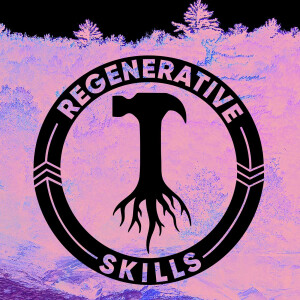
Friday Mar 25, 2022
Dr James Gruber on the key principles of how communities thrive
In this ongoing series on building strong communities, we’ve already taken a look at the buildings and infrastructure that are more conducive to regenerative living and connected populations, but I want to return to a broader range of contexts and applications from around the world in this episode. Much like the first session from this series with Zach Weiss in which he profiled amazing examples from across the globe of communities who have come together to achieve incredible transformations of their ecosystems through landscape hydrology restoration, there are so many case studies to draw from.In my own travels I’ve witnessed inspiring groups of people who’ve overcome massive disadvantages such as lack of access to materials, funds, and antagonistic governments by banding together in their common vision of a better life and future. Some of the most notable projects I remember from an earlier stage in my work when I designed and built natural homes. There were technical skill training programs for single mothers and disadvantaged youths to give them higher wage job opportunities when I lived on Lake Atitlan in Guatemala. A few of the graduates of that program worked side by side with me on natural building projects and ran restaurants that I frequented. In that same area I worked with a clinic that also had a low cost home building program which worked with the residents around them to identify the most vulnerable people living there to build stable housing for. In Senegal my Dutch clients worked with their local fishing community to create communal meeting spaces near the dilapidated fishing docks and establish a fresh food market run by women at the entrance of the town. Here in Spain I’ve visited a hotel and ranch that are working with local authorities to manage the forests in their area to reduce fire risk by harvesting discarded wood to turn into mushroom substrate, an enterprise that also works with at-risk youth from Barcelona to give vocational training and has also hired from that group. So many of my collaborators and clients from around the world have exemplified community collaboration and outreach and I’ve often wondered if there’s a playbook that one could access to begin the nuanced process of bringing people together to work towards common goals.Luckily, the new book by Dr James Gruber called Building Community: Twelve Principles for a Healthy Future does exactly that, and I reached out to the author (who prefers to go by Jim) to get his take on the steps in this process. The book profiles tons of exceptional examples of community projects from around the world. Some of which Jim has studied and others of which he was involved with directly and helped to facilitate in his role as a community consultant. In this interview we talk about some of the important considerations when first approaching a community based project. Jim outlines many of the key steps that nearly all of the case studies he’s seen have in common and are not to be skipped if long term success is what you’re after, and he shares inspiring anecdotes from his facilitation role and observations of this process unfolding organically in different places. He also gives insight into his toolbox of leadership strategies meant to guide newcomers of community development to help ensure that your project gets started on the right foot. Oh and a quick bonus for those of you who really want to dive deeper into community building, my good friends at New Society who published this book are offering a giveaway for listeners of this show. Just stick around till the end of this episode where I’ll tell you just how you can get a free copy of Building Community for yourself. A little disclaimer, I had a short delay on my side of the connection in the beginning of this interview so you’ll hear me clumsily interrupt Jim a few times at the start. Luckily it doesn’t last for too long.
No comments yet. Be the first to say something!